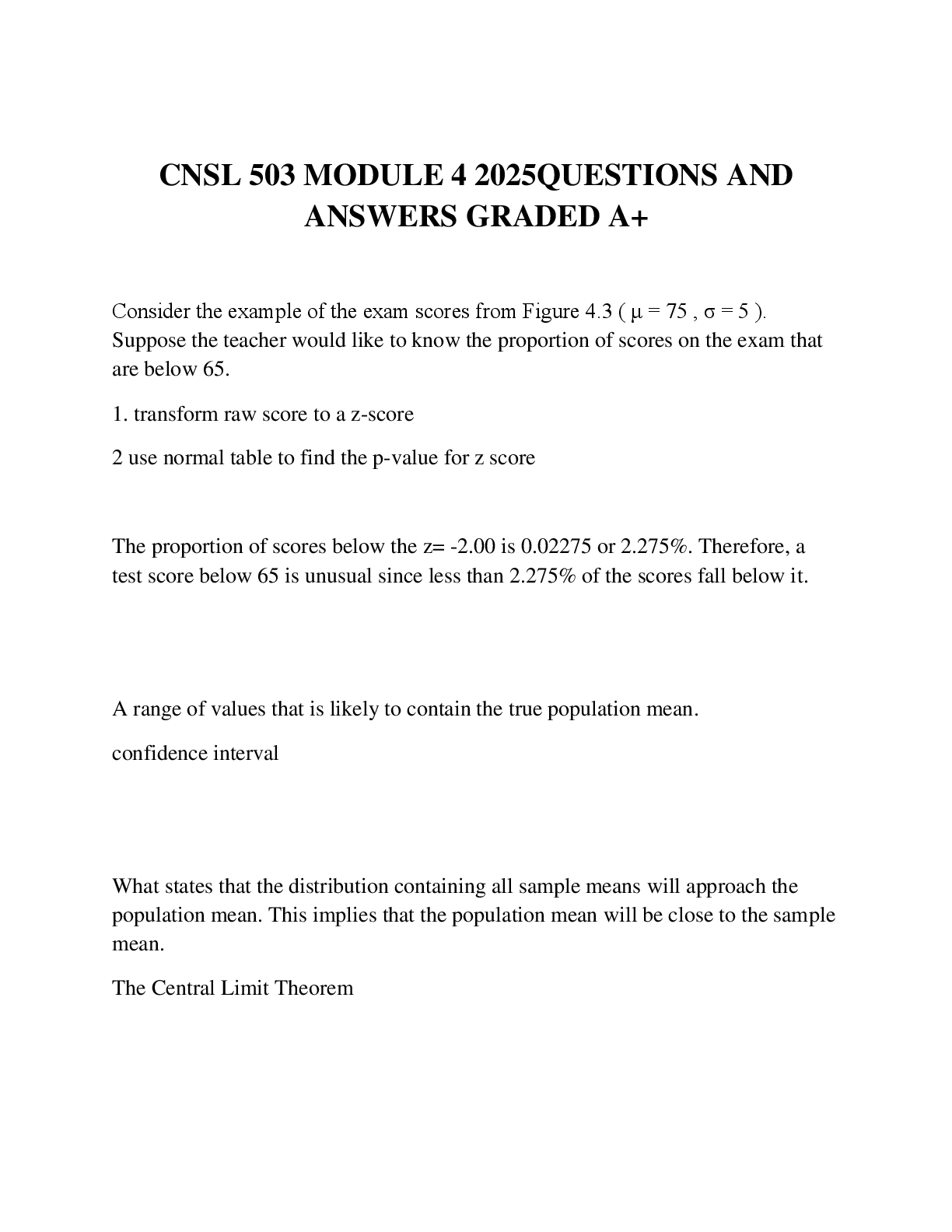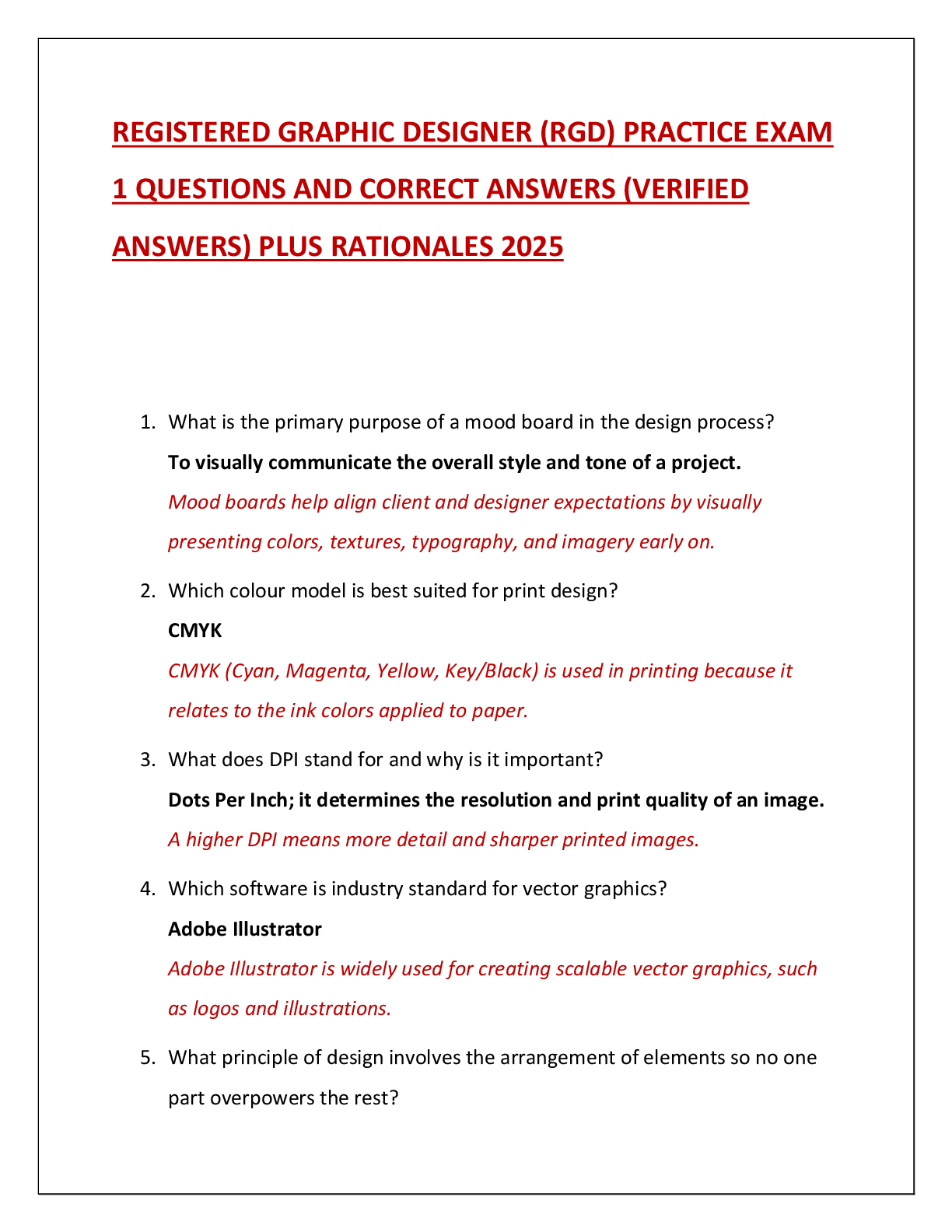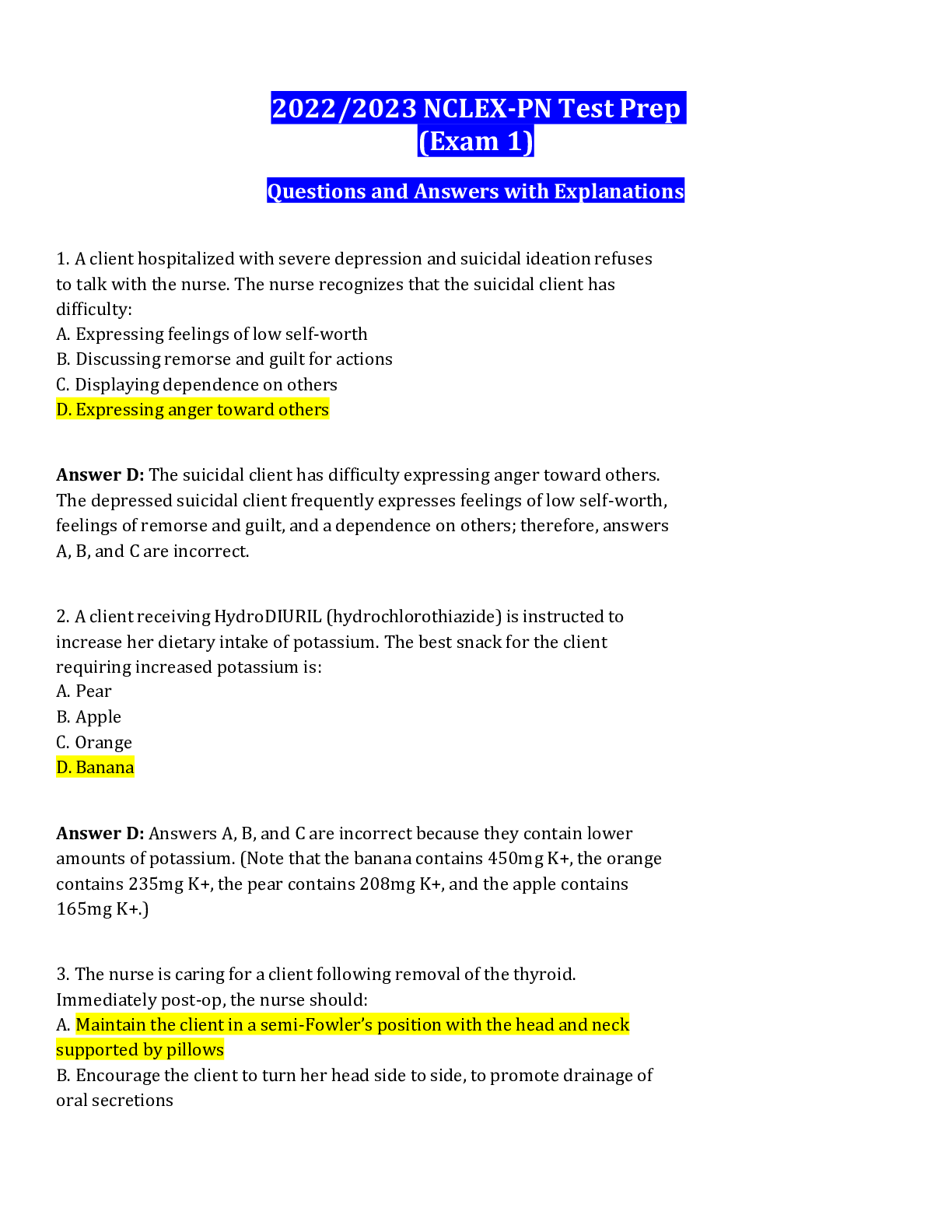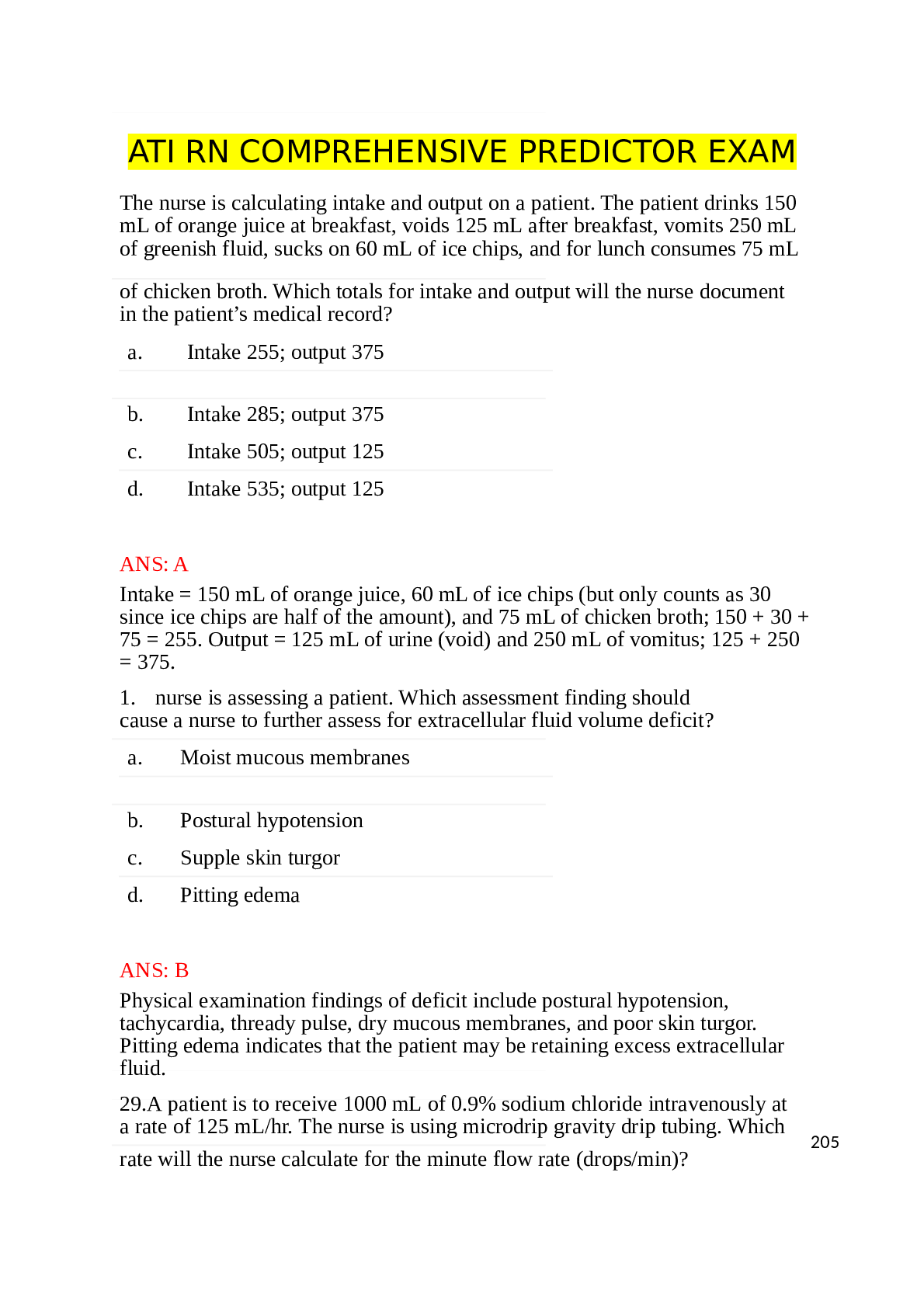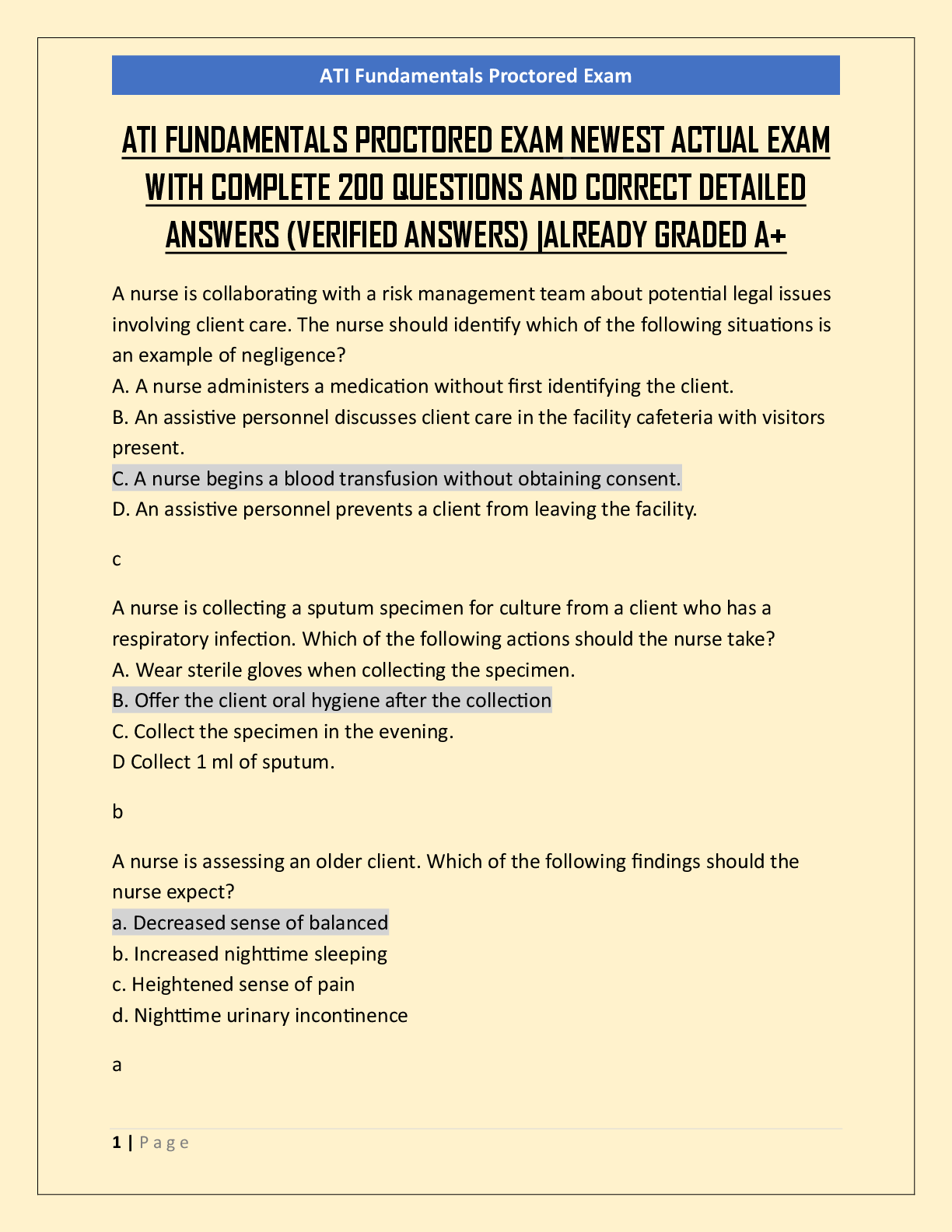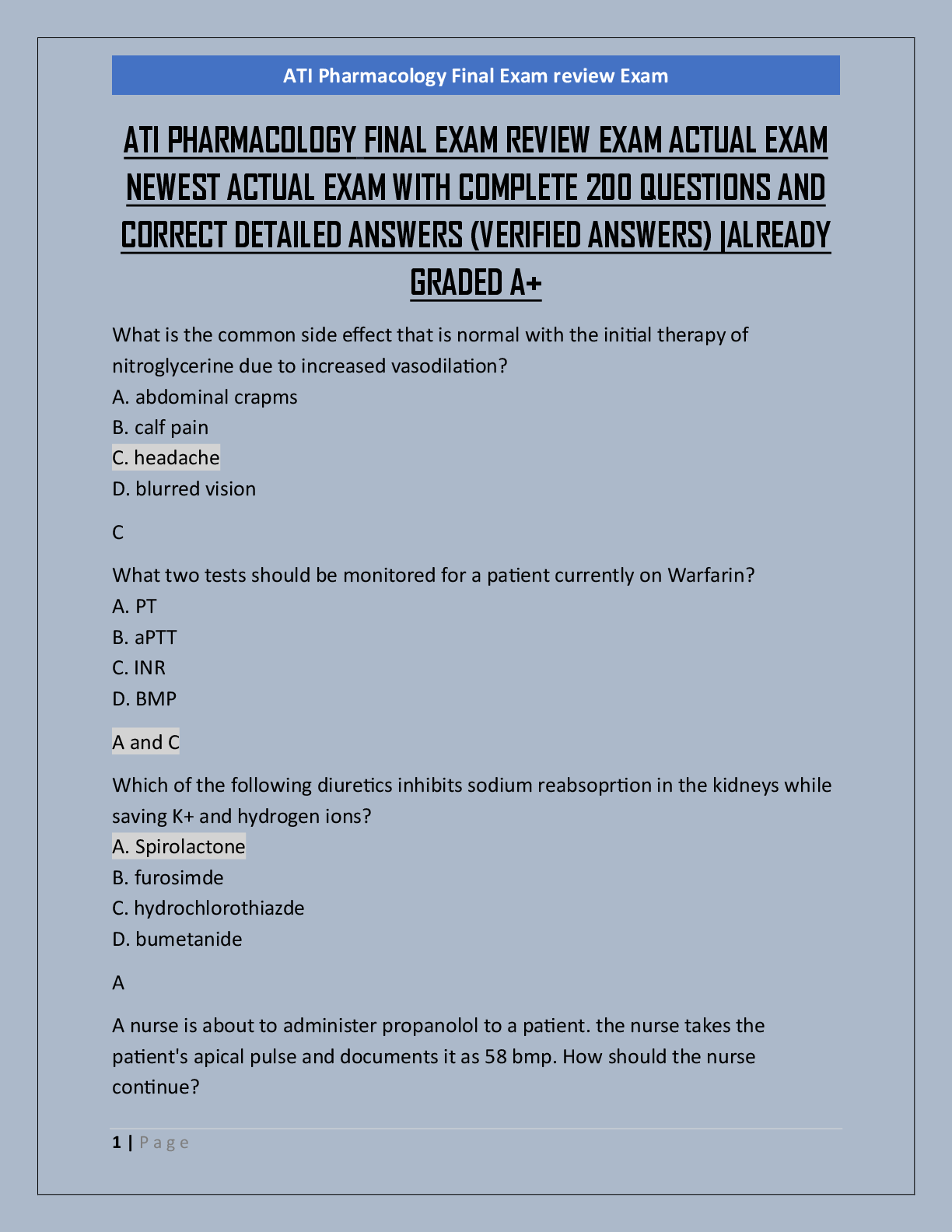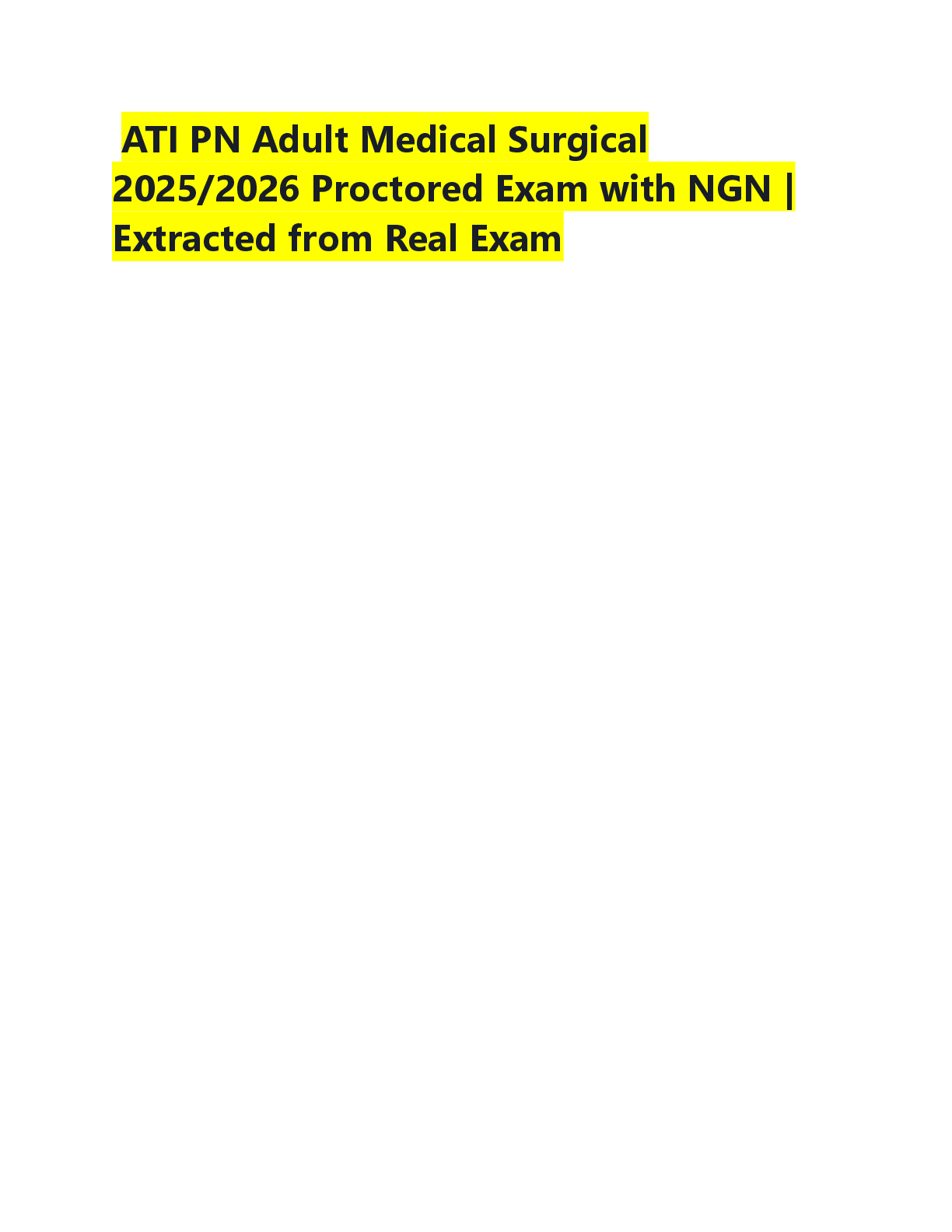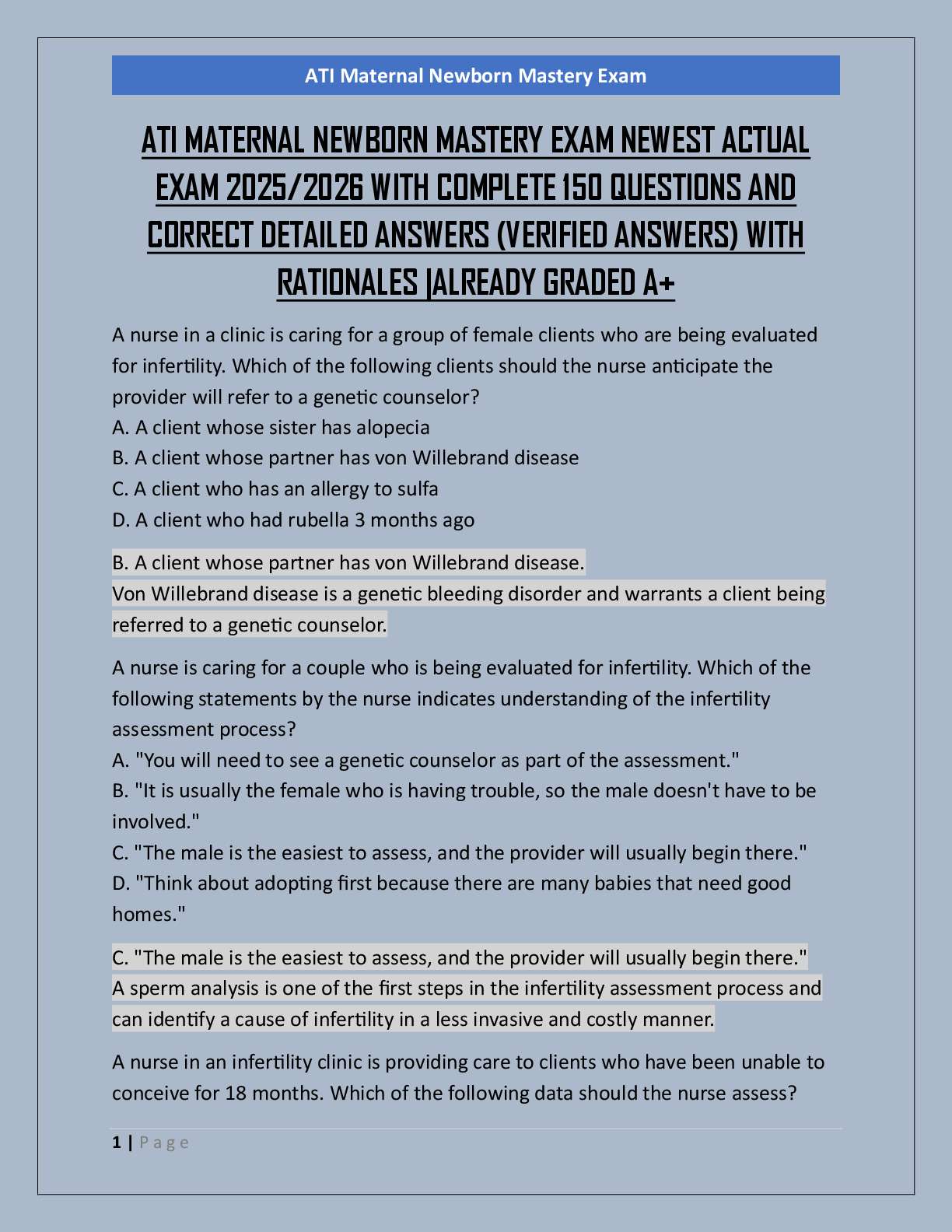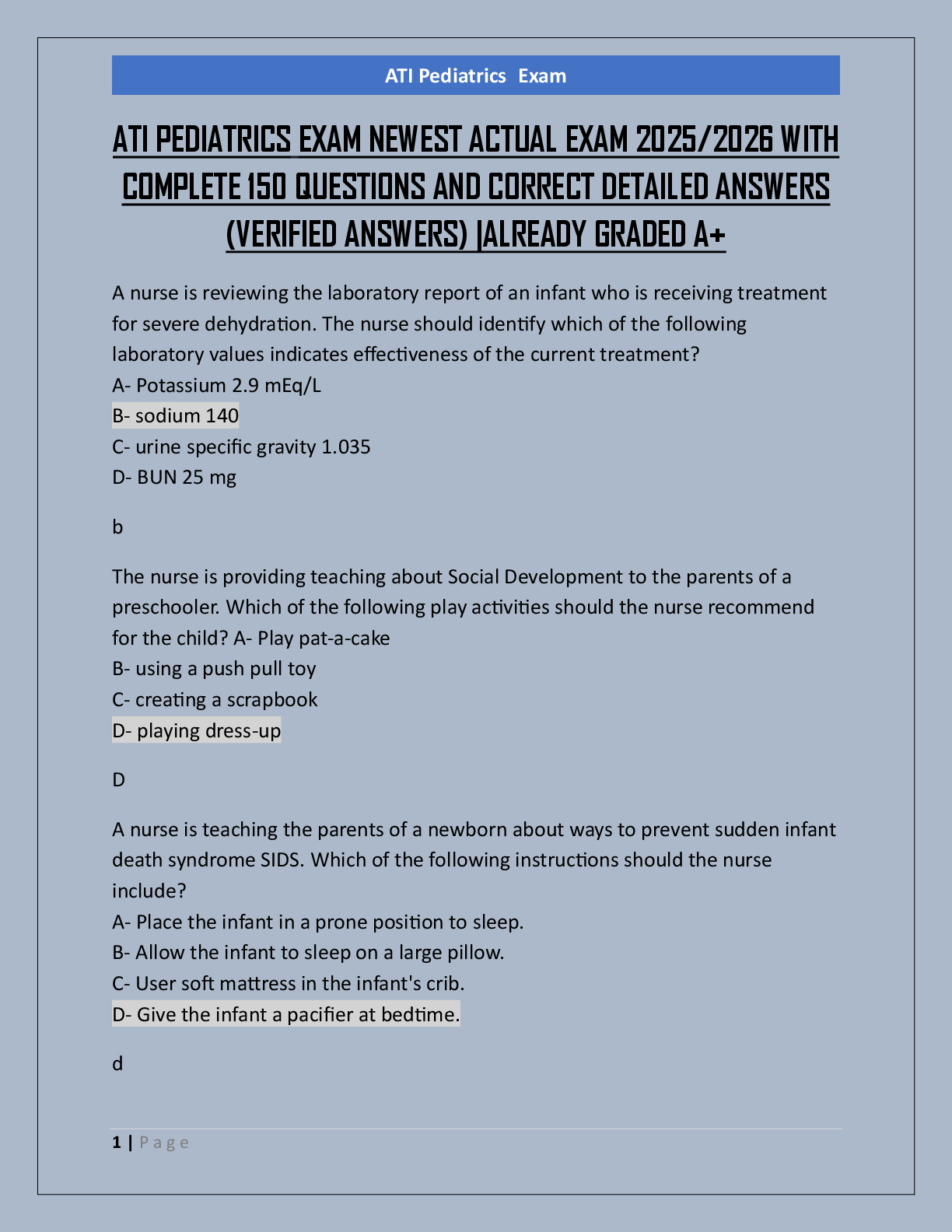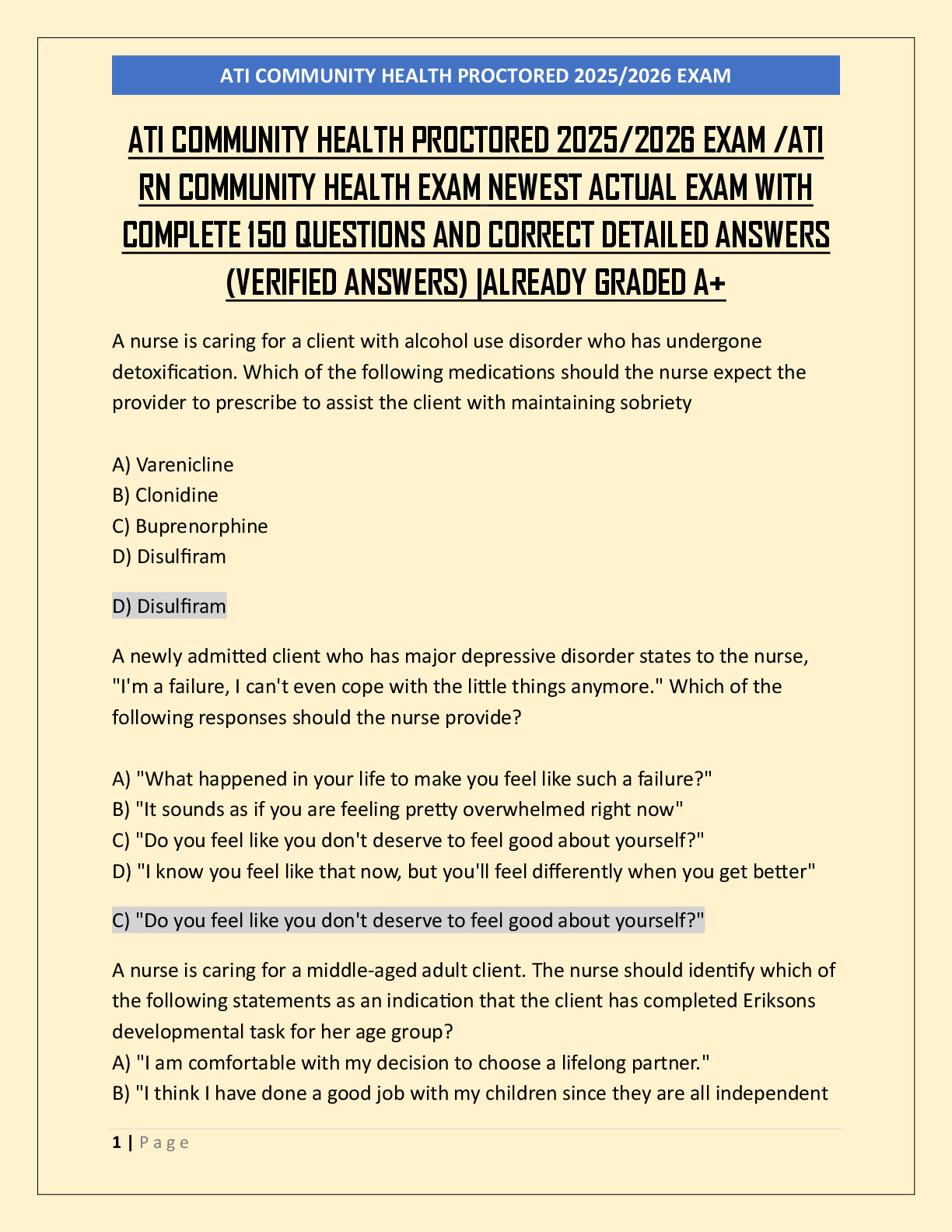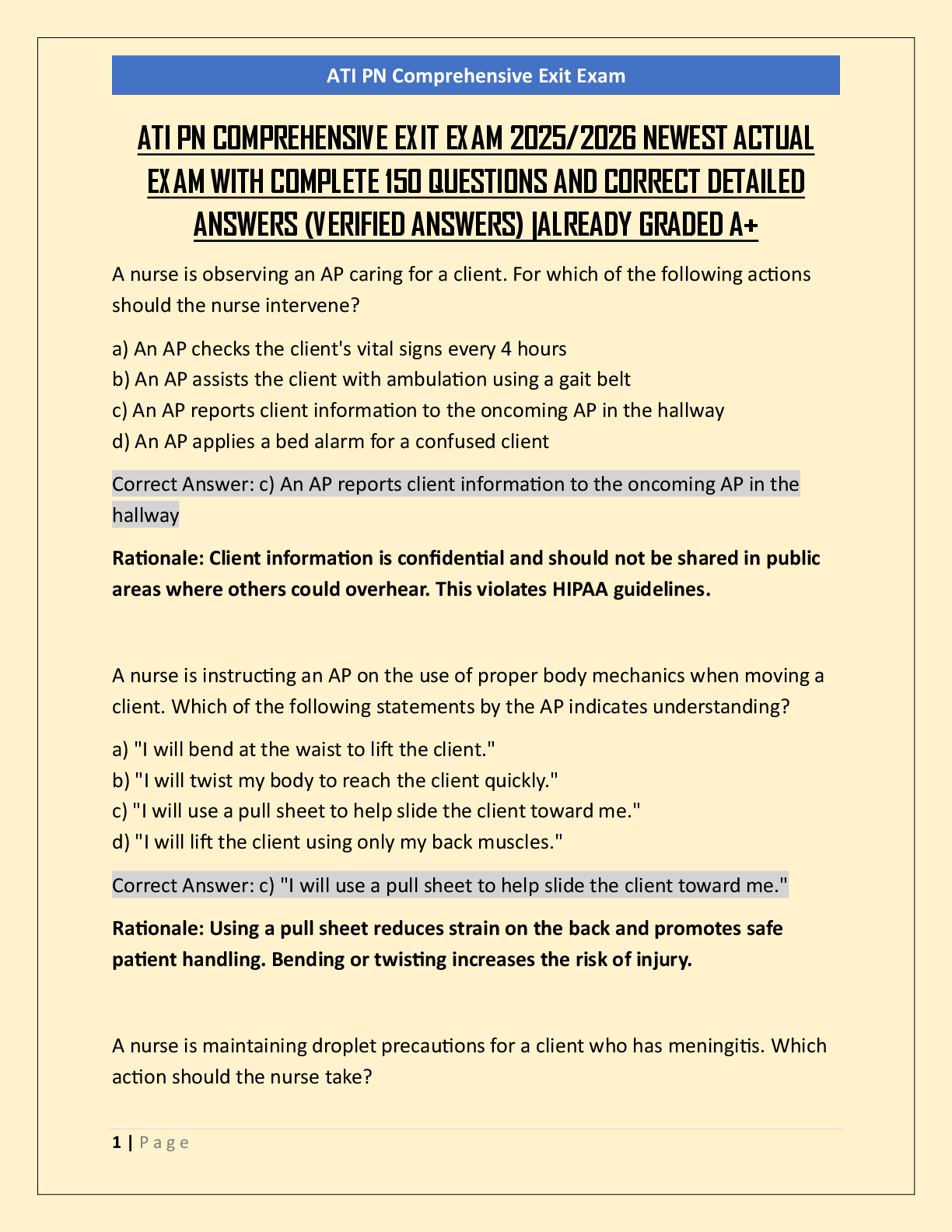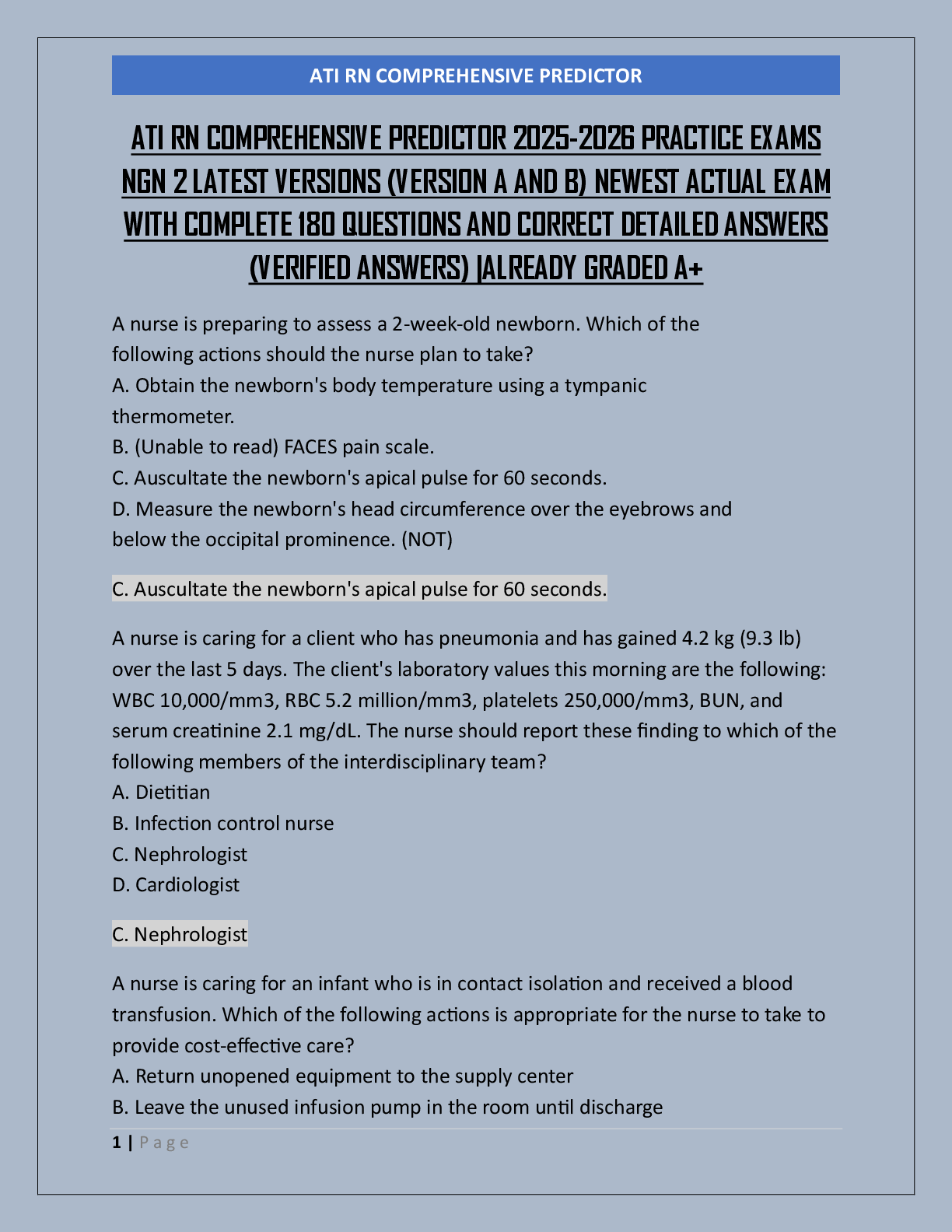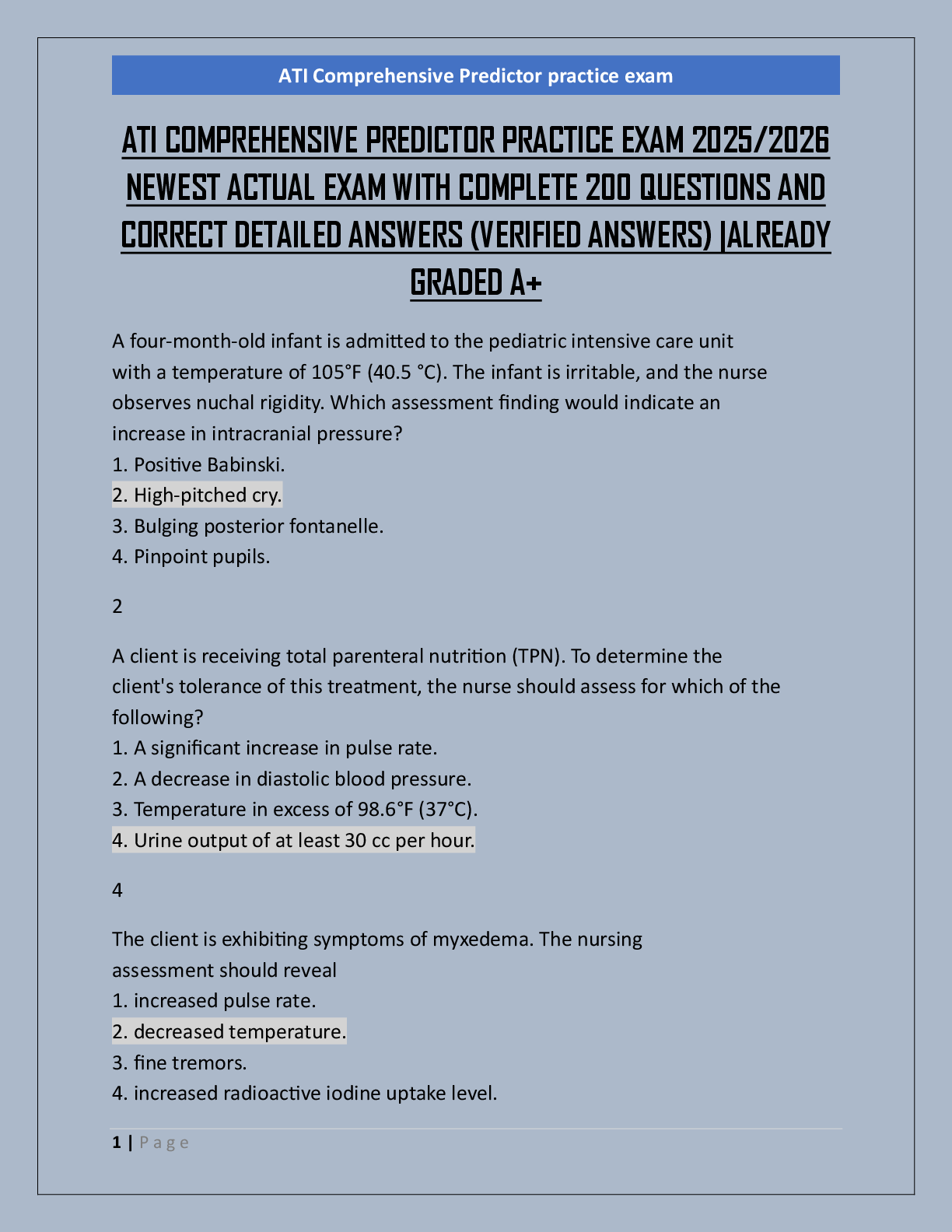ATI RN COMPREHENSIVE PREDICTOR RETAKE 2019
1. A nurse is assessing a client who has received an antibiotic. The nurse should
identify which of thefollowing findings as an indication of a possible allergic
reaction to
...
ATI RN COMPREHENSIVE PREDICTOR RETAKE 2019
1. A nurse is assessing a client who has received an antibiotic. The nurse should
identify which of thefollowing findings as an indication of a possible allergic
reaction to the medication?
A. Bradycardia
B. Headache
C. Joint pain
D. Hypotension
2. A nurse on a mental health unit is caring for a client who has schizophrenia and
is experiencingauditory hallucinations telling them to hurt others. The client is
refusing to take anti-psychoticmedication. Which of the following responses
should the nurse make?
A. “You should plan to take this medication for a few weeks.”
B. “You will regret it if you do not take this medication.”
C. “This medication will help you respond to the voices.
D. “This medication will help you stop the voices you are hearing.”
3. A nurse is providing care for a patient who has depression and is to have
electroconvulsive therapy.Which of the following conditions should the nurse
identify as increasing the client’s risk for complications?
A. Hyperthyroidism
B. Renal calculi
C. Diabetes mellitus
D. Cardiac dysrhythmias
4. A nurse is reviewing the laboratory results of a client who has rheumatoid
arthritis. Which of thefollowing findings should the nurse report to the provider?
A. WBC count 8,000/mm
B. Platelets 150,000/mm
C. Aspartate aminotransferase 10
units/LD. Erythrocyte
sedimentation 75 mm/hr
5. A nurse is suctioning the airway of a client who is receiving mechanical
ventilation via an endotracheal tube. Which of the following findings should the
nurse identify as an indication thatsuctioning has been effective?
A. Presence of a productive cough
B. Decreased peak inspiratory pressure
C. Thinning of mucous secretions
D. Flattening of the artificial airway cuff
6. A nurse is caring for a client who is in a seclusion room following violent
behavior. The client continues to display aggressive behavior. Which of the
following actions should the nurse take?
A. Stand within 30cm (1 ft) of the client when speaking with them.
B. Express sympathy for the client’s situation.
C. Confront the client about his
behavior.
D. Speak assertively to the client.
7. A nurse is caring for a client who is immediately postoperative following an
adrenalectomy to treatCushing’s disease. Which of the following actions is the
nurse’s priority?
A. Reposition the client for comfort every 2 hours
B. Observe for any indications of infection
C. Document amount and color of the incisional
drainage
D. Monitor the client’s fluid and electrolyte
status.
8. A nurse is caring for a client who is scheduled for a surgical procedure and states,
“I don’t want tohave this surgery anymore.” Which of the following responses
should the nurse make?
A. “We can manage your care following the procedure without
complications.”
B. “You have the right to refuse the procedure.”
C. “Your doctor thinks the surgery is necessary.”
D. “Let me review the procedure so you can understand what is going to happen.”
9. A nurse is evaluating a client who has borderline personality disorder. Which
of the followingbehaviors indicates an improvement in the client’s condition?
A. Impulsive behaviors
B. Decreased clinging behavior
C. Liability of mood
D. Dependent behavior
10. A nurse is teaching a group of school-age children about healthy snack
options. Which of thefollowing snacks should the nurse include?
A. Air-popped popcorn
B. Milkshake made with whole milk.
C. Baked potato chips
D. Cheesecake
11. A nurse is providing teaching to a client who has a new prescription for
enoxaparin. Which of thefollowing medications for pain relief should the nurse
include in the teaching that can be taken concurrently with enoxaparin?
A. Naproxen sodium
B. Ibuprofen
C. Acetaminophen
D. Aspirin
12. A nurse is caring for a client who has fibromyalgia and requests pain
medication. Which of thefollowing medications should the nurse plan to
administer?
A. Colchicine
B. Lorazepa
C.Pregabali
n
D. Codeine
13. A nurse is caring for a client who has congestive heart failure and is receiving
furosemide and digoxin. Which of the following laboratory values indicates that
the client is at risk for developingdigoxin toxicity?
A. Glucose 150 mg/dL
B. Magnesium 1.3
mEq/L
C. Potassium 3.1
mEq/L
D. Sodium 134 mEq/L
14. A nurse is caring for a client who had an embolic stroke and has a prescription for
alteplase. Which ofthe following in the client’s history should the nurse identify as a
contraindication for receiving alteplase?
A. Hip arthroplasty 1 week ago correct
B. Obstructive lungs disease
C. Retinal detachment
D. Acute kidney failure 6 months ago
[Show More]
